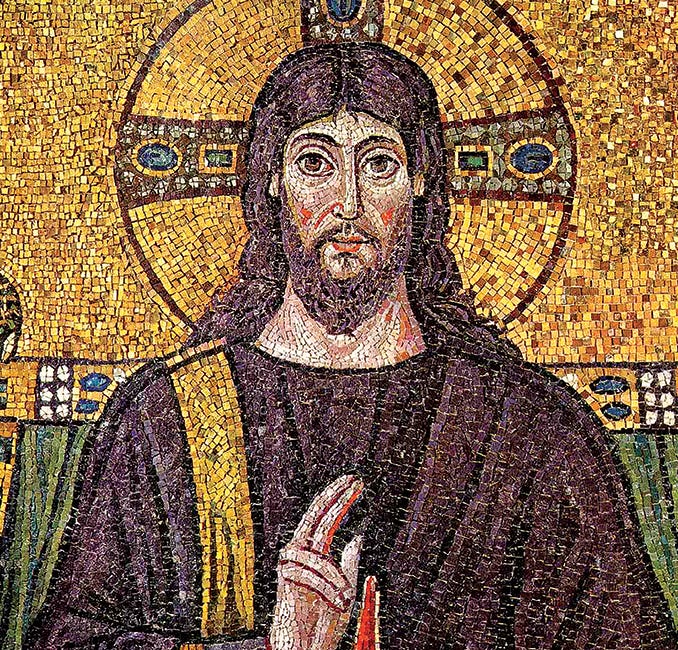Jesus as a fanatical rebel against the Roman occupation
Review of Zealot: The Life and Times of Jesus of Nazareth by Reza Aslan
Reza Aslan's Jesus is essentially a Jew of his time, concerned with Rome’s military occupation of his homeland, in spiritual crisis about the direction his faith was taking, and in search of a new political way. His words and teachings were directly addressed not to humanity as a whole, but solely to those of his faith, the Jews. In other words, according to Aslan, his message was not intended to be universal, but narrowly sectarian. Indeed, among the Jews themselves, Jesus in this interpretation was a zealot, who preached a radically strict adherence to Jewish law in direct opposition to the corrupt official guardians of the faith.
In accordance with traditional Roman practices, the Romans gained control by co-opting the elites of the nations and kingdoms that they occupied. To do so in Israel, they had reached agreement with the religious leaders, who were also a hereditary caste. This kept tax revenues flowing into Rome, but also allowed them to pursue their faith in the manner chosen by the elite and eventually supported by the exceptionally brutal Herod the Great. It was against this arrangement that Jesus – and an astonishingly wide range of other prophets of the time – arrayed themselves as revolutionaries preaching various interpretations of the way forward for the Jewish faithful. In this context, Jesus and many of the others were arrested and executed for sedition against the Roman occupation.
What distinguishes Jesus, according to Aslan, is a combination of factors. Most striking, there was his purported resurrection, which Aslan essentially dismisses as myth. This fit with the prophesies of the Old Testament. Then, certain aspects of his teachings, such as the baptism by the wilderness ascetic, John, gained attention by many as a way of life that was realistic and apolitical. Moreover, with the destruction of Jerusalem by Titus in 70 CE, the alternate (strictly Jewish) interpretations of Jesus' teachings, in particular that of his brother James and his coterie, were wiped out - they had failed to protect their followers. Finally, a series of writers reinterpreted Jesus' legacy for a Graeco-Roman audience, essentially transforming a Jewish message of chosen community into a universal one for export to everyone. This was the work of Paul and then the writers of the Gospels, who added Christ (the “anointed one” in Greek) to his name. Aslan argues that without these factors, Jesus would not be viewed as any different from the other prophets of the period. The process is virtually identical to Buddha's transformation of Hinduism for export.
As an atheist with a passionate interest in the birth of Christianity as a historical phenomenon, Aslan's book was exactly what I was looking for: a look at the life of Jesus placed solidly in political context. It is beautifully written and dense. Best of all, I could trust the author's grasp of history completely, even if his interpretation is rather radical.
I do not mean to advance Aslan's interpretation. But I do recommend it as a fascinating and highly readable inquiry into one of the most influential lives in human history.
Related:
How Paul created Christ
Tabor essentially argues that Paul, who never met Jesus, is responsible for the transformation of what was a Jewish messianic movement into something very different and explicitly for gentiles, i.e. a Graeco-Roman audience, as it came to be enshrined in the New Testament. The spirit of Jesus, it seems, talked to Paul, leaving him with a vision - and det…
Rome, Israel, and the early Christians
Starting from the reign of the Julio-Claudians (27 BCE to 68 CE), the book compares the cultures when the vassalage of "Judea" functioned well, follows the deterioration of relations that culminated in the destruction of Jerusalem (70 CE), and then examines the aftermath of repeated rebellions and the rise of Christians (and anti-Semitism). For many rea…
How Christianity arose from a mix of Judaism and Hellenism
If you are interested in where Christianity came from – not a theological perspective but an historical one – this is an absolutely excellent place to start. Though the text assumes a fair amount of knowledge, it is a solid platform for a popular audience that is curious about what academics would make of the subject. The author is very clear that the b…
Earliest attempts to shape Christianity
I am somewhere on the agnostic/atheist spectrum. What I have discovered in this book is absolutely fundamental and determined for many years the direction of my personal search for meaning.








